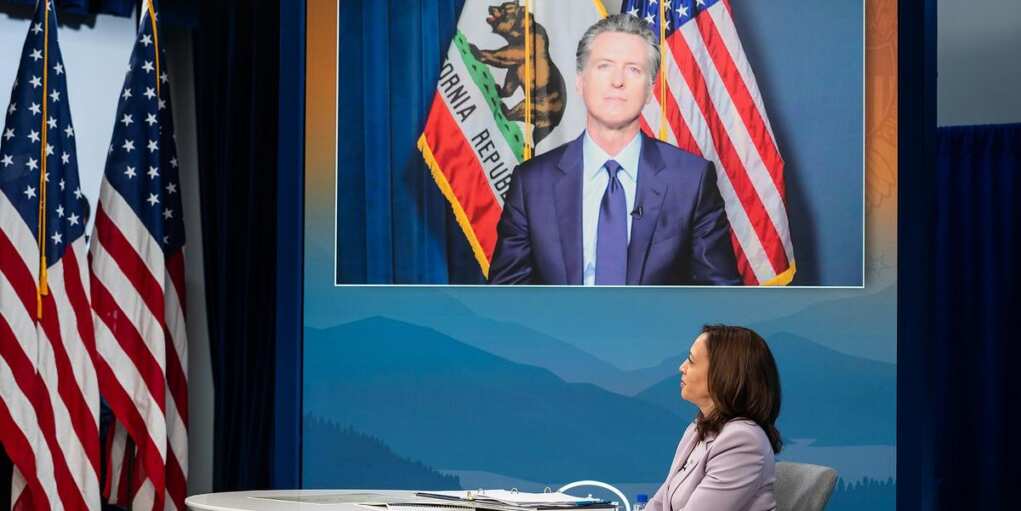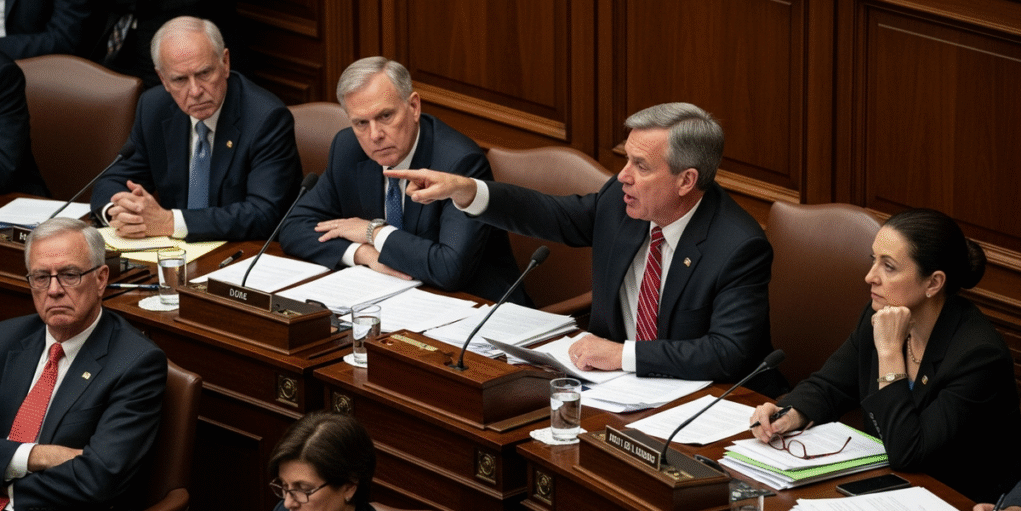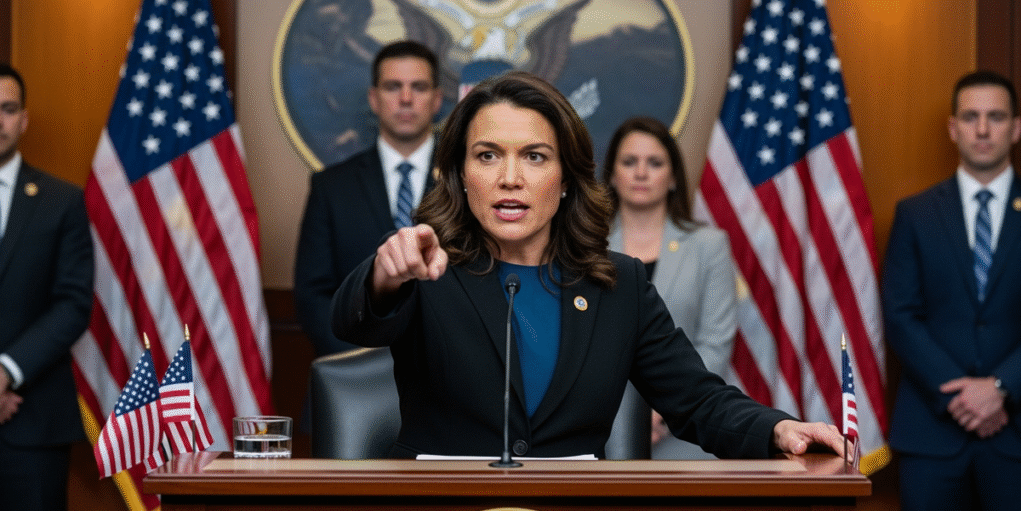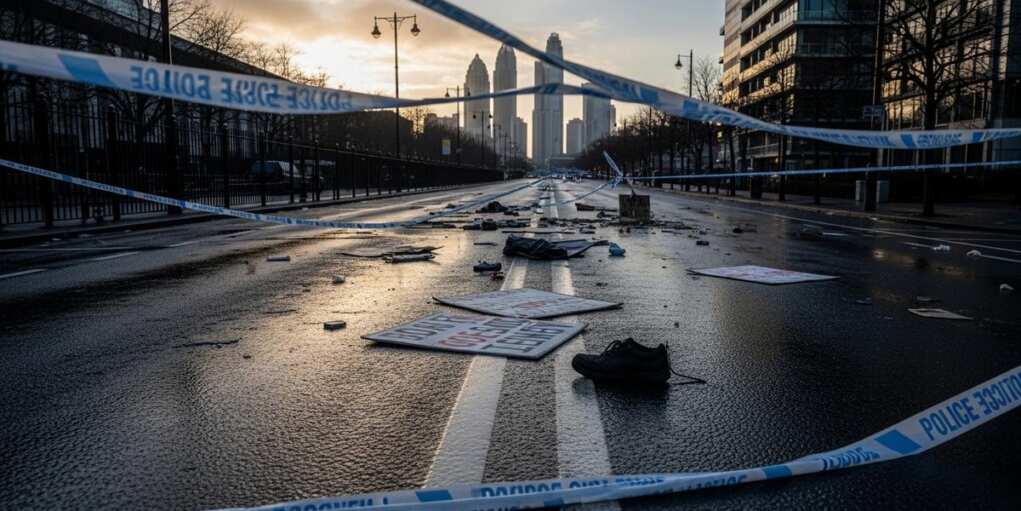FBI Cleans House, These Agents Went Way Too Far
There’s a scene in every heist movie where the criminals think they’ve covered their tracks perfectly. The files are hidden. The evidence is buried. Nobody will ever know. And then the new sheriff shows up, finds everything, and the whole thing unravels in spectacular fashion. That’s exactly what just happened at the FBI. Except this […]
Mexican President Goes To War With Elon Musk
Claudia Sheinbaum, the President of Mexico, is considering suing Elon Musk. Not for defamation in the traditional sense — not for a factual claim that can be proven false. For a social media post that implied she works for the cartels. Musk’s comment was characteristically blunt. Responding to a post on X that asked whether […]
Newsom vs Harris – They’re Already Discussing It
Dana Bash asked Gavin Newsom a simple question on Sunday: will you and Kamala Harris face off in a 2028 presidential primary? Newsom’s answer: “Fate will determine that.” Fate. Not “the voters will decide.” Not “we’ll see what happens.” Not “I have enormous respect for the Vice — ” wait, she’s not the vice president […]
Illegal Randomly Tries To Kill Woman In Strange Way
Tiger Shores Beach, Martin County, Florida. Evening. A woman walking alone along the water. The kind of moment that’s supposed to be peaceful — the end of a day, the sound of waves, the simple freedom of being outside in your own country. Then a man came up behind her. Said Alexander Hernandez Gonzalez — […]
AOC Mocked For Her Hilarious Global Stage Meltdown
Every few years, a politician does something so publicly embarrassing that even their allies quietly look away and pretend they didn’t see it. Alexandria Ocasio-Cortez just had an entire weekend of those moments — back to back to back — on an international stage, in front of the kind of audience that doesn’t hand out […]
Chinese Militarism Surges, D.C. Urges Taiwan To FIGHT
Here’s a scenario that should make every American pay attention. China is rehearsing an invasion of Taiwan. Not in theory. Not in war games at a think tank. The People’s Liberation Army is conducting large-scale drills simulating encirclement and blockade operations around the island. Chinese aircraft are crossing the median line of the Taiwan Strait […]
Dems Threaten Their Own People – “Do As We Say Or Else”
John Kennedy has a gift that most senators would trade their committee assignments for — the ability to say exactly what everyone’s thinking, but funnier. On Wednesday, the Louisiana senator looked at the Democratic Party’s latest standoff over DHS funding and delivered a diagnosis so sharp it should come with a co-pay. “The game room […]
Phone Companies Admit Spying On Conservatives
Picture this. You’re a sitting member of Congress. You’re going about your business — making calls, sending texts, doing the job voters sent you to do. And somewhere in a windowless DOJ office, Jack Smith’s team is vacuuming up your phone records like a Roomba with a warrant and zero shame. That’s not a hypothetical. […]
Tulsi Gabbard Unleashes On Democrat Liars
If you want to know who the deep state fears, watch who they attack. They’re not going after bureaucrats who play ball. They’re not targeting intelligence officials who protect the old guard. They’re coming for Tulsi Gabbard — and they’re coming hard. This week, Senator Mark Warner went on NBC and accused the Director of […]
ICE Now USELESS – Ridiculous New Restrictions Coming
You’ve got to hand it to Chuck Schumer and Hakeem Jeffries. When they want to sneak something past the American public, they don’t use the front door. They crawl through the basement window at 2 a.m. wearing socks on their shoes. While the country was glued to Epstein documents and kidnapping headlines, the two most […]
Watch: Trump Spars With “Worst Reporter” Over Stupid Question
Kaitlan Collins had her moment planned. The Epstein files had just dropped. Three million pages. Names everywhere. The biggest document release in the history of the case. Trump’s name wasn’t connected to the island. Wasn’t on the flight logs. Wasn’t in witness testimony linking him to criminal activity. Collins walked into the press availability anyway […]
Bernie Sanders Exposed For Bizarre Sex Magick
You think you know Bernie Sanders. The democratic socialist. The finger-wagging senator from Vermont. The man who honeymooned in the Soviet Union and almost won the Democratic nomination twice. You don’t know the half of it. A new book reveals that young Bernie Sanders built a homemade device designed to harness sexual energy and produce […]
Joe Rogan Exposes Obama – Video Proves His Sleazy Actions
“That sounds so Republican.” Joe Rogan couldn’t believe what he was hearing. But it wasn’t a Republican speaking. It was Barack Obama. In 2010. Defending deportation. The same policies Democrats now call “Nazi tactics” were mainstream Democratic positions just 15 years ago. The receipts are on tape. And Rogan is making sure millions of people […]
Breaking Bad Celeb Calls For Violent Insurrection
“This is time for a revolution.” That’s Giancarlo Esposito. You know him from Breaking Bad, The Mandalorian, countless other roles. Successful actor. Wealthy. Famous. Living the most privileged existence possible in human history. And he wants a revolution. Not just any revolution. One where people die. Lots of people. Maybe 50 million of them. Here’s […]
DeSantis Exposes Gavin Newsom’s Treasonous Plot At Davos
Gavin Newsom has a state burning — literally and figuratively. Homelessness exploding. Crime rampant. Population hemorrhaging. Wildfires destroying communities. So where was California’s governor this week? Davos. Frolicking with globalist elites. Taking photos with Alex Soros. And urging foreign leaders to rally against the President of the United States. Ron DeSantis has had enough. The […]
Most Popular
Most Popular
















